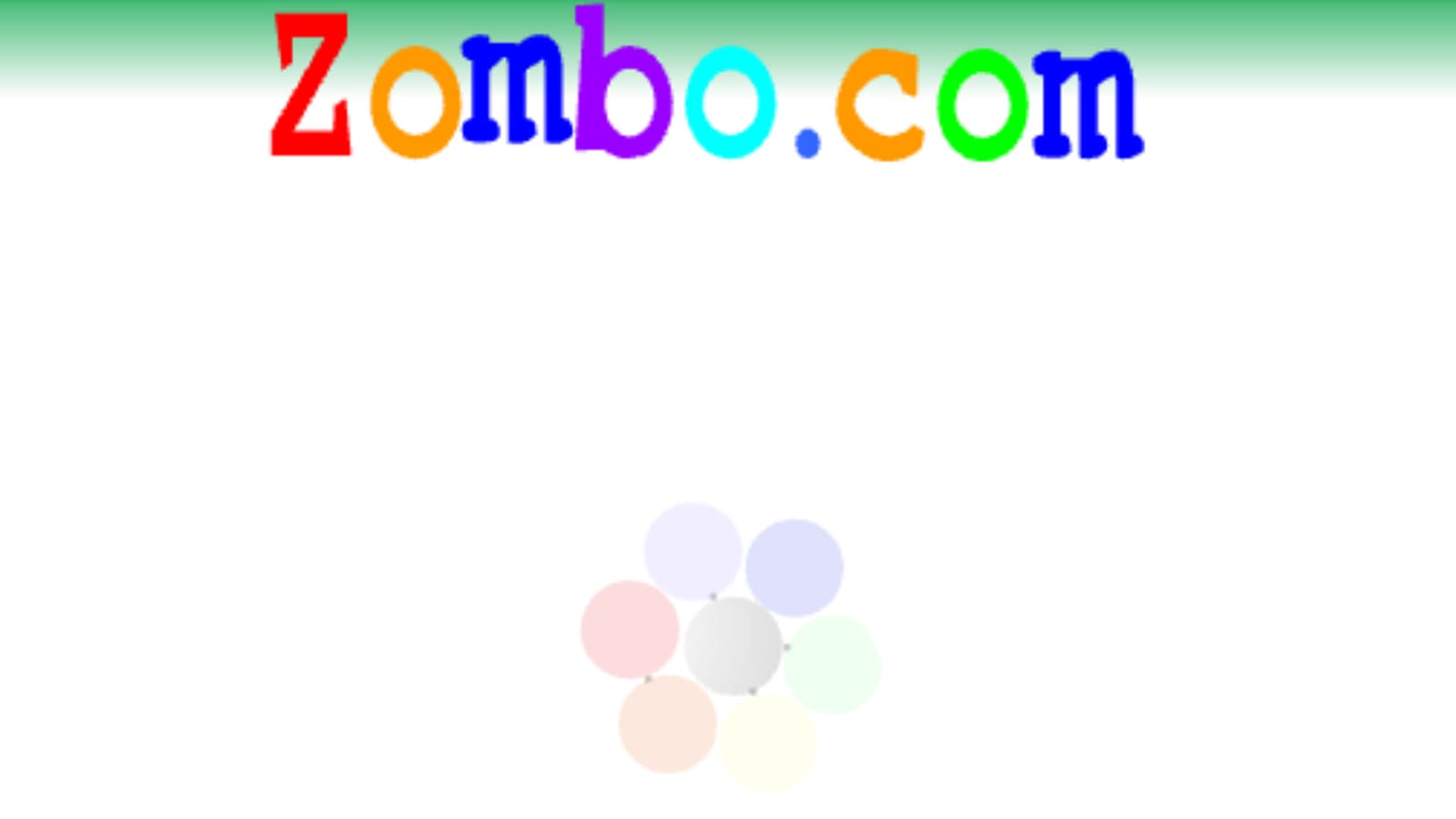 Zombo.com, 2004, via Wayback Machine
Today: Miles Klee, author of the novel Ivyland and culture writer at Rolling Stone.
Issue No. 14511 Things About Zombo.com
Miles Klee
11 Things About Zombo.comThis story is part of The Lost Internet, a month-long series in which the members of Flaming Hydra revisit internet marvels of the past.
1) Zombo.com actually still exists. I had thought it lost to the afterlife because for a few days my browser wouldn’t load the site, and other fans had reported it gone. But then, on a hunch, I tried again—and there it was. Fitting that a purgatorial web page would flit in and out of digital limbo, both existing and not. 2) Which nonetheless means that someone is paying, just a little bit, to keep it up. 3) By “purgatorial” I do not mean “punitive,” unless you have no patience for jokes that deliberately waste your time. Zombo.com, established in 1999, is presented as the animated landing page (originally rendered with Flash, itself a vanished entity, now rendered in HTML5) for a domain that serves no discernible purpose. Instead, you are greeted by a preschool-font “Zombo.com” banner and spinning rainbow pinwheel that suggests buffering, tinny muzak and a voice of ambiguously African accent explaining how wonderful Zombo.com is. “This is ZomboCom; welcome...to ZomboCom. You can do anything at ZomboCom. Anything at all. The only limit is yourself. Welcome...to ZomboCom.” Eventually, the site would provide a link to sign up for a newsletter, but this no longer happens, and the script simply loops around. Which is conceptually funnier. 4) No, you do not say the “dot” in Zombo.com. It’s “ZomboCom.” This has the effect of making it sound not like another random website but maybe a lifestyle, a cutting-edge technology, perhaps even a kind of transhumanist future. You have to understand, people were saying stuff like “the information superhighway” back then. The dot-com bubble had not yet burst. And when it did, Zombo.com was just fine—because business didn’t enter into it. You don’t even say the “dot.” 5) In that context, Zombo.com has to be considered one of the most prescient artifacts preserved from the early internet. The hype-and-bust cycle of Silicon Valley is familiar to us now, as are the empty promises that drive it. Zombo.com predicts everything from the Theranos fraud to NFTs, self-driving Teslas and AI that can supposedly obviate minimum-wage McDonald’s labor. Back then, it satirized the need for everyone and every business to get online, regardless of what could or could not be accomplished in this emergent network. But in retrospect, it is more an absurdist warning against utopian corporatism. 6) I don’t really care who created Zombo.com, or why, and its author appears not to crave the credit. A man named Josh Levine, often credited as the originator, has long avoided interviews, though he once allegedly explained that the name is a play on the word “zombie,” and its perpetual living-dead quality bears this out. Supposedly, too, the idea had its beginnings at the George Washington University Center for Professional Development, which may account for the parodic response to the phenomenon of capital staking its flags around the internet like it was so much virgin territory, and not a world it would have to create itself. 7) In any case, the intended commentary is eclipsed by a continued history infinitely dumber than the moment that produced it. 8) More than anything, though, Zombo.com reminds me of a time when you didn’t send people links. You had to have your friend in the room and sit them down at the computer and make them look at it. This didn’t always go well, of course, but the slow-burn pleasure of Zombo.com was having your friend watch, and wait, and wait, until they realized nothing was going to happen, that all of us are victims of anticipation, and nonsense, and belief in exclusive access. They either laughed or muttered “This is so stupid”—and laughed. Of course we are willing to entertain the feeling that we have been selected to receive a higher message, and of course we are pleasingly humbled to discover that none is forthcoming. 9) Meaning that Zombo.com is not not a higher message. 10) There is no algorithm on Zombo.com. There are no ads; it can’t sell you anything. The site doesn’t scrape your personal data, it cannot garner or measure “engagement,” it will never influence elections or facilitate coordinated harassment or show you a picture of your ex with their new partner. Zombo.com has never amplified misinformation or glamorized eating disorders or helped to radicalize a mass shooter. In its complete lack of function, it is morally correct, an oasis in a desert of ill designs. 11) “Anything...is possible...at ZomboCom.”
A BREATH OF PURIFYING FLAMEToday at the Guardian, Hydra Arwa Mahdawi invokes George Orwell’s Politics and the English Language in a searing essay against the use of the term “centrist” and the follies of orthodoxy.  George Orwell, public domain, via Wikipedia
If you love this newsletter and the principles of press freedom and independence it supports, why not forward it to a friend?
|